After a long and exceptionally negative campaign, millions of Americans are voting on their next president as opinion polls showed Democrat Hillary Clinton with a narrow lead over Republican Donald Trump.
In a battle focused on the character of the candidates, Mrs Clinton, 69, a former US secretary of state, and Mr Trump, 70, New York businessman, accused each other of being unfit to lead the United States against challenges like an arduous economic recovery, Islamist militants and the rise of China.
As he did during the campaign, Mr Trump raised the possibility of not accepting the election's outcome, saying he had seen reports of voting irregularities. He gave few details and Reuters could not immediately verify the existence of such problems.
"We're going to see how things play out today. Hopefully they'll play out well and hopefully we won't have to worry about it, meaning hopefully we'll win," the former reality TV star said in a telephone interview on Fox News. "I want to see everything honest."
Mr Trump also sued the registrar of voters in Nevada's Clark County over a polling place in Las Vegas that had been allowed to remain open late last week during an early voting period to accommodate people, many of them Hispanic, who were lined up to cast ballots.
The election is being held across six time zones and the polls will close at 4am tomorrow Irish time.
We need your consent to load this rte-player contentWe use rte-player to manage extra content that can set cookies on your device and collect data about your activity. Please review their details and accept them to load the content.Manage Preferences
Speaking to RTÉ's Six One. Anna Greenberg, a Democratic pollster, said the latest polls showing Mrs Clinton in the lead by three or four points are "pretty reliable", but potentially under represent Mrs Clinton's vote.
She said the polls do not measure the Hispanic vote very well because money is not spent on bilingual interviewing, adding that it is possible in places like Nevada and Florida that Mrs Clinton will do even better than the polls say.
Unsure about the US election? @BrianOD_News explains electoral colleges, swing states and what to look out for https://t.co/FdYBYvNN4S
— RTÉ News (@rtenews) November 8, 2016
On the same programme, Thomas M Davis, a former Republic Congressman from Virginia, dismissed national polls, but said Mr Trump needs to win all of the key states.
He said Mr Trump's campaign has hurt the Republican turnout, saying a divided party does not have a united turnout effort.
Mr Davis said he believes the Senate will be very close, but Republicans almost certainly hold the House of Representatives, adding "we may be in for a couple of years of divided government which is...the new norm in American politics".
Clinton and Trump cast votes as waiting game begins
Mrs Clinton and Mr Trump held closing rallies in the battleground states of North Carolina, Pennsylvania and Michigan ahead of polling.
We need your consent to load this rte-player contentWe use rte-player to manage extra content that can set cookies on your device and collect data about your activity. Please review their details and accept them to load the content.Manage Preferences
The campaign ended in the same angry tone it began, with Mr Trump calling his rival a "phoney" and Mrs Clinton accusing him of splitting the country.
Both candidates raced through several battleground states yesterday in a last-ditch attempt to encourage their supporters to show up and vote.
Mrs Clinton sought to capture more support from Latinos, African-Americans and young people, while Mr Trump looked to win over disaffected Democrats and rev up a middle class that he said has been sidelined by the political establishment.
A Reuters/Ipsos States of the Nation project gave Mrs Clinton a 90% chance of defeating Mr Trump, seeing her on track to win 303 Electoral College votes out of the 270 needed, to Mr Trump's 235.
The trail is just over.Soon the voting.Then the counting.Stick with us @rte https://t.co/R7gbS7WSpL.Mobile.From 7am @rtenews @morningireland pic.twitter.com/yUmOPbsHa2
— Caitriona Perry (@CaitrionaPerry) November 8, 2016
With surveys indicating a tight race in Michigan, which Democrats have long counted on winning, both candidates made campaign appearances there. Pennsylvania, another vote-rich state, was also seen as fertile ground by both camps in the closing hours of their campaigns.
Mrs Clinton held the biggest rally of her campaign in Philadelphia, drawing a crowd that the city's Fire Department put at 33,000 to hear her and President Barack Obama, first lady Michelle Obama and rockers Bruce Springsteen and Jon Bon Jovi.
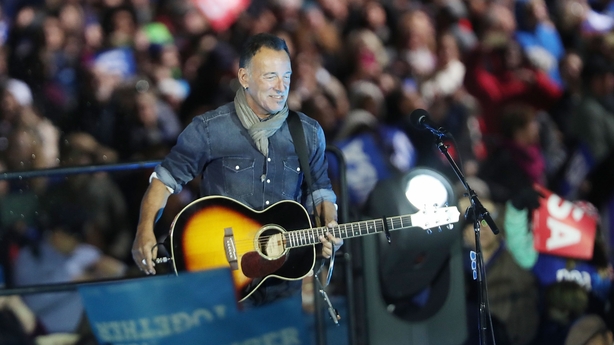
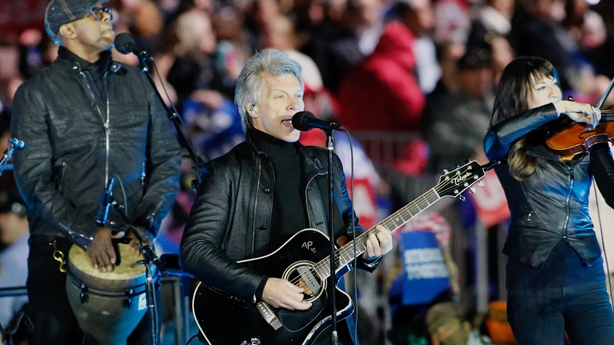
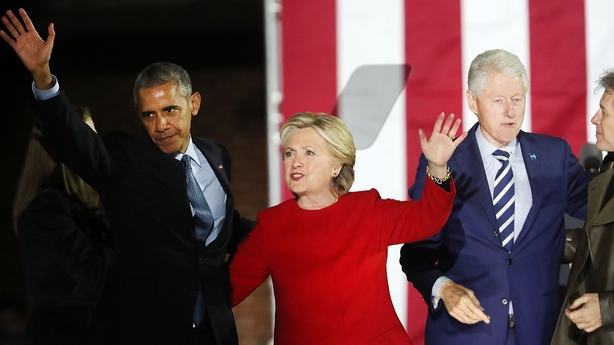
She told supporters: "We choose to believe in a hopeful, inclusive, big-hearted America."
Mr Obama, who campaigned earlier in the day for Mrs Clinton in Ann Arbor, Michigan, reiterated his charge that Mr Trump is "temperamentally unfit to be commander in chief," and said Mrs Clinton offered an experienced and accomplished alternative.
"You don't just have to vote against someone, you have someone extraordinary to vote for," Mr Obama said. "She will work and she will deliver, she won't just tweet."
Mr Trump told voters at an evening rally in Manchester, New Hampshire, they had one question facing them at the ballot box.
"Do you want America to be ruled by the corrupt political class or do you want America to be ruled again by the people?" he asked. "Tomorrow [Tuesday] the American working class will strike back."
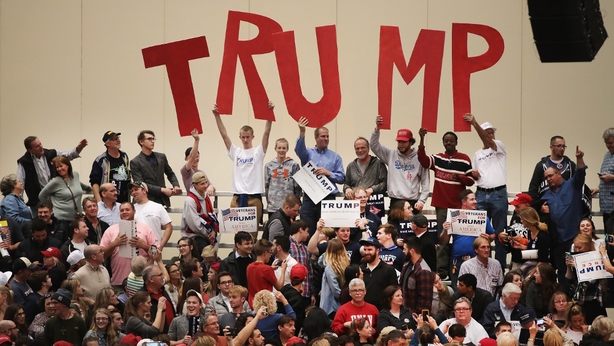
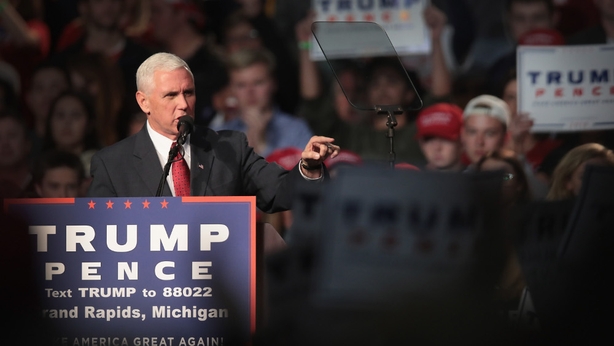
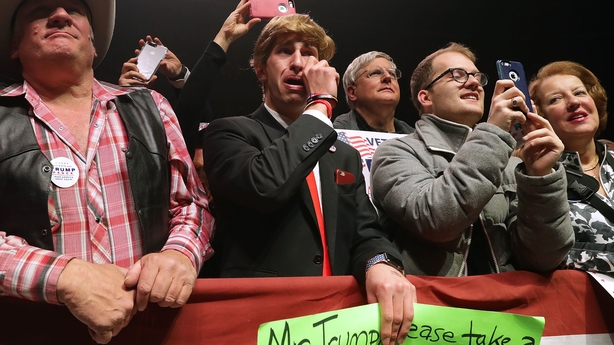
Victory is ultimately determined not by the popular vote, but by capturing a majority of the votes in the Electoral College, which awards votes on a state-by-state basis, meaning that a handful of states where the race is close assume an outsized importance.
RTÉ will provide extensive coverage on results night, across online, mobile, television and radio.

